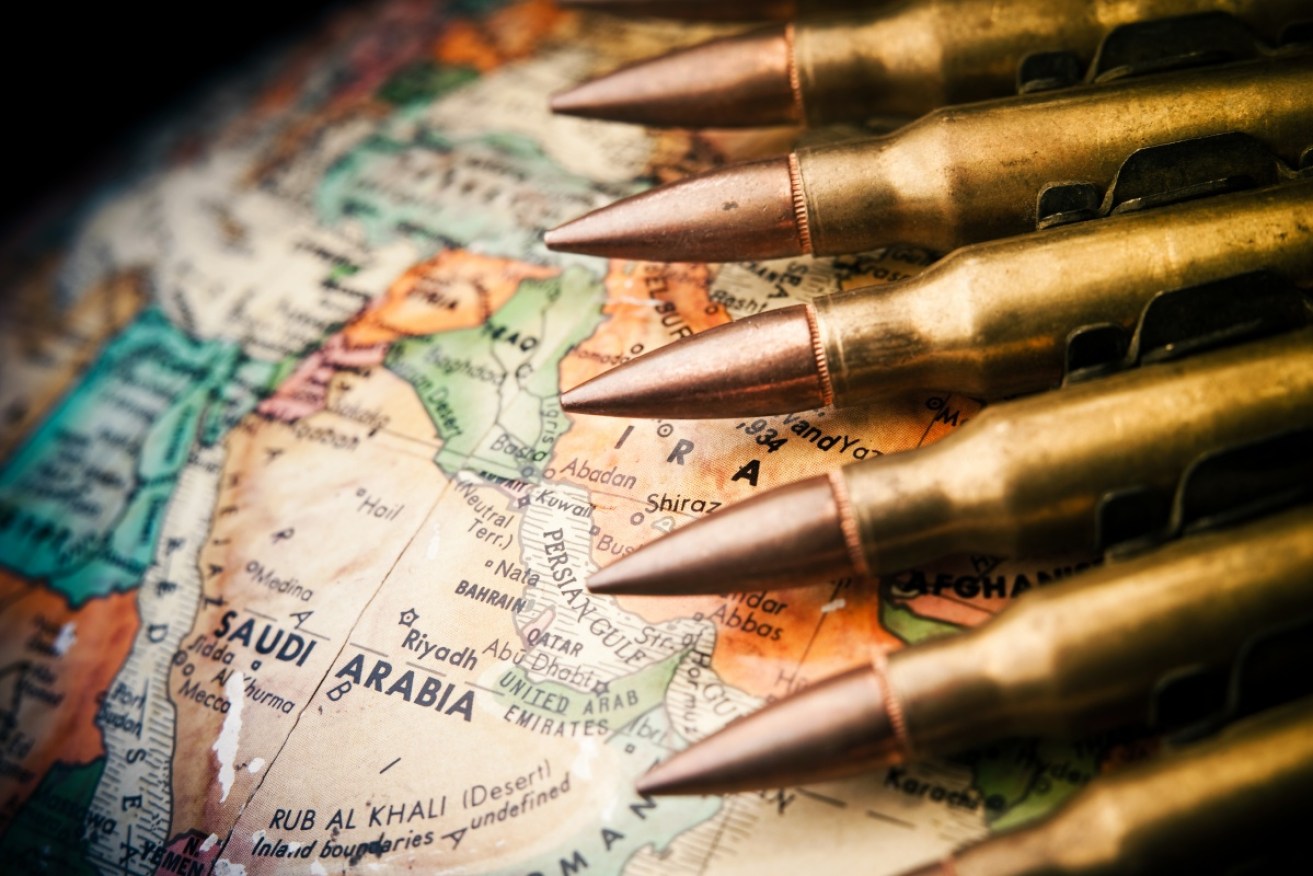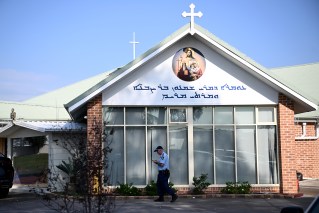This ‘proxy war’ could fill the Islamic State vacuum


The age-old conflict between Iran and Saudi Arabia is heating up again. Photo: Getty
The demise of Islamic State and the ascendence of the Saudi Crown Prince threaten to engulf the Middle East in a renewed proxy war between Sunni Saudi Arabia and Shiite Iran.
Fresh after the capture of key IS strongholds in Raqqa and Deir az-Zur, Saudi Arabia appears to have seized the moment to push its geopolitical agenda against Iran, with Lebanon the new battleground.
Middle East researcher Marika Sosnowski, an academic at Melbourne University, said the collapse of IS and the desire of Crown Prince Mohammed Bin Salman to consolidate power had prompted both Iran and the Saudis to “flex their muscles”.
“What has probably precipitated these events is the Crown Prince of Saudi Arabia manoeuvring himself into more of a power position in the royal family,” she told The New Daily.
“The increasing downfall of the Islamic State is probably another factor too.”
A long and bitter conflict
The age-old conflict between Iran and Saudi Arabia is founded in religious sectarianism, economics, regional power and geography, Ms Sosnowski said.
The two states, separated by the Arabian-Persian Gulf, have been at loggerheads since the western-backed Iranian monarch, Mohammad Reza, was overthrown in 1979.
The majority view among experts is that Saudi Arabia fears Iran wants to dominate the Middle East, and that its willingness to push back has been emboldened by the election of US President Donald Trump, who shares its distrust of Iran.
“Iran’s government must stop supporting terrorists, begin serving its own people, and respect the sovereign rights of its neighbour,” Mr Trump said in September.
In one of the proxy battlegrounds in Syria, Iranian-backed Shiite militias fought against rebel Sunni forces backed by the Saudis. There are also clashes between Saudi-led forces and the Iran-backed Houthi movement in Yemen.
Now that the IS war is winding down, Saudi Arabia appears to have turned its attention to Lebanon’s militant Shia group Hezbollah, which it has long feared to be a weapon in Tehran’s alleged plans to expand its power.
Over the weekend, US Secretary of State Rex Tillerson warned Middle East nations against using Lebanon for proxy conflicts.
“There is no legitimate place or role in Lebanon for any foreign forces, militias or armed elements other than the legitimate security forces of the Lebanese state,” Mr Tillerson said.
“The United States strongly supports the sovereignty and independence of the Republic of Lebanon and of its political institutions.”
A government in crisis
Mr Tillerson was responding to the controversial resignation of Lebanese prime minister Saad al-Hariri on November 4 from inside Saudi Arabia.
Iran and Hezbollah claim the Saudis detained Mr al-Hariri and forced his resignation. Mr al-Hariri denies this, saying instead that he fled Lebanon for the safety of Saudi Arabia because he feared assassination.
In a TV interview on Tuesday, Mr al-Hariri said Lebanon was at risk of Arab economic sanctions because of what he described as interventions in Yemen and Bahrain by Hezbollah, which is part of the coalition government he formerly led.
“I am freely in the Kingdom, and if I want to travel tomorrow, I will travel. I have a family, and it is my right to protect them,” Mr al-Hariri said.
Associate Professor of International Relations at Monash University, Ben McQueen said it seemed like Saudi Arabia had put pressure on Mr Al-Hariri’s to resign.
“The constellation of alliances was not favouring the Saudis in Lebanon,” he said.
But, he said, Lebanon’s politics was too convoluted and confusing for any clear reason to present itself for Al-Hariri’s resignation and that if the two powers intended to fight a proxy war in Lebanon it would have already happened.
The Qatar factor
While throughout the Middle East and North Africa, government’s are lining up on either side of the divide.
The rivalry was brought into stark contrast, with Saudia Arabia, the UAE, Libya, Bahrai, Egypt, the Maldives, Maurentania, Senegal, Chad, Somaliland, and Comoros, all cutting back or off ties with Qatar.
Qatar is a majority Sunni country and close neighbour of Saudi Arabia, but it has a close economic relationship with the Shiite Iran.
In one of the proxy battlegrounds in Syria, Iranian-backed Shiite militias fought against rebel Sunni forces backed by the Saudis.
There are also clashes between Saudi-led forces and the Iran-backed Houthi movement in Yemen and efforts from both sides to have Iraq’s government and powerful religious militias join their side.








